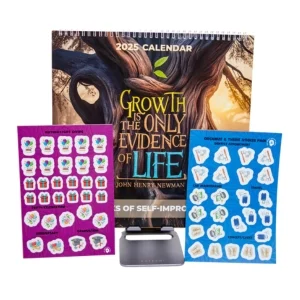A Double-Edged Sword
In our hyper-connected world, social media is a daily ritual for many. But behind the filtered photos and witty captions, is there a darker side to our scrolling habits? Research suggests a link between heavy social media use and depression, raising concerns about the impact of these platforms on our mental well-being.
Products To Support You

Everyday Mental Wellness Gift Card

Growth Calendar with Stickers
The Bright Side: Social Media as a Force for Good
It’s not all doom and gloom. Social media also offers some benefits for mental health. Let’s look at both sides of this issue.
The Dark Side: The Risks to Your Mental Well-being
While social media offers these benefits, it’s crucial to acknowledge the potential risks:
Finding Balance: Protecting Your Mental Health in the Digital Age
The key to a healthy relationship with social media lies in moderation and mindfulness:
- 1Limit Your Time: Set boundaries and stick to them. Use app timers or schedule specific times for social media use.
- 2Curate Your Feed: Unfollow accounts that trigger negative emotions and follow those that inspire and uplift you.
- 3Engage Mindfully: Be intentional about your social media use. Ask yourself why you’re scrolling and what you hope to gain from it.
- 4Take Breaks: Regularly disconnect from social media to reconnect with yourself and the real world.
- 5Prioritize Sleep: Avoid screens before bed and establish a relaxing nighttime routine.
- 6Seek Help if Needed: If social media is negatively impacting your mental health, don’t hesitate to reach out to a mental health professional.
Remember, social media is a tool. It’s up to you to decide how to use it. By prioritizing your mental well-being and using social media mindfully, you can enjoy its benefits while minimizing its potential harm.

